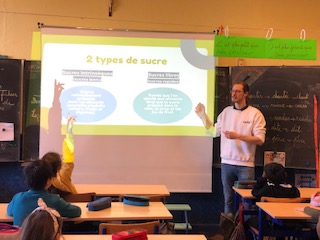DISSEMINATION as part of FOOD4INCLUSION PROJECT
With the Food4Inclusion Project we aim to prevent exclusionary effects that can be anticipated, by constituting several best practises:
- promotion of an inclusive and well-adapted food system;
- children-destined nutrition education;
- the fostering of better access to healthy food.
Access to healthy diets is notably hampered by the lack of awareness and by the aggressive marketing of High Food Sugar or Salt (HFSS) products, especially children marketed products.
Increasing consumers’ understanding of nutrition, promoting healthier food and diets, and developing better access to information regarding food are key levers to foster sustainable and healthy food habits in consumers. It will pave the way to more social integration, decrease healthcare needs, and diminish direct effects of poverty for disadvantaged populations.

Partners
For this project, SAFE teamed up with several partners from different European countries (Croatia, Belgium, Romania, Greece and Italy).
ACTIONS
In order to pursue the objectives of this project, notably improving food literacy and protecting the most vulnerable categories (children in particular) from the consequences of unhealthy nutrition, SAFE and its partners carry out many actions and initiatives to improve understanding of some key issues for healthy and sustainable eating habits.
– SUGAR TRAININGS
SAFE organises nutrition trainings on sugar consumption for children in several Belgian schools. According to the World Health Organisation, the maximum recommended daily sugar intake for children aged 7 to 10 years and 11 to 18 years is 24 and 28 grams respectively. However, studies have shown that the average child currently consumes far more than recommended, with an average of 55 grams per day. Educating children about healthier eating is the first step in helping them become informed consumers and adopt lifestyles that will help them prevent obesity and disease.
SAFE and its partners also produced several food literacy materials on sugar and food labelling in English, French, Greek, Croatian.
– SUGAR MATERIALS
– FOOD LABELLING
Food labelling flyer in French
Flyer on children trainings in English




